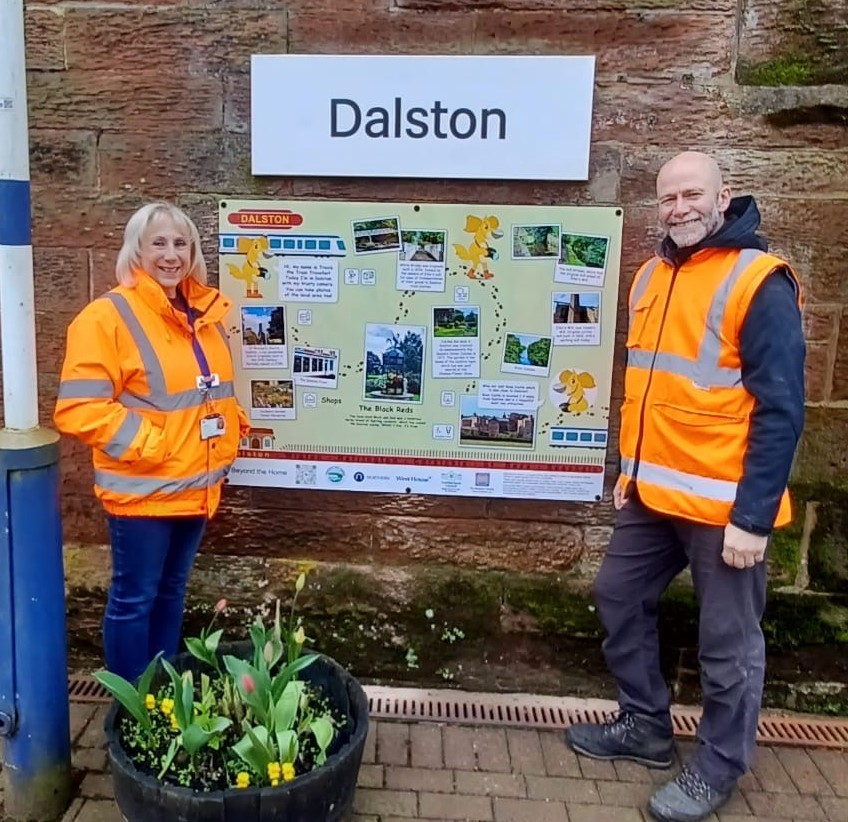Information panels with Makaton symbols that promote walks, trails, cycle routes, nature reserves and heritage attractions have come to six stations in Cumbria.
Makaton is a unique language programme that uses symbols, signs and speech to enable people with disabilities to communicate. It is used by over 100,000 children and adults in the UK as their main method of communication or as a way to support speech.
The panels have been installed at Corkickle, Dalston, Harrington, Seascale, St Bees and Wigton stations.
The project, which is called ‘Beyond the Home’, is a collaboration between Northern, Community Rail Cumbria, West House, Carlisle Day Services and Allerdale & Copeland Day Opportunities.
Cumberland Council and The Makaton Charity have also supported the campaign.
Craig Harrop, regional director for Northern, said: “We believe that train travel should be easy for everyone – but it is important that we continue to provide that support once customers step off the train.
“By collaborating on projects like ‘Beyond the Home’, we’re helping to increase active and accessible travel along the Cumbrian Coast Line.”
Warren Birch, Community Rail Partnership officer, said: “It was wonderful working with the different organisations and particularly the people who access the services who are the real stars of the ‘Beyond the Home’ project.
“To see their initial ideas develop into the end products was inspiring, as was the positive change in people’s self-esteem and confidence.
“Community Rail Cumbria hope that people will travel by train to visit hidden gem destinations all along the West Cumbrian coast.”
For more information about Makaton, visit: https://makaton.org.
For details on the latest improvements and innovations Northern is adopting to make journeys easier for everyone, visit: www.northernrailway.co.uk/accessibility-hub.
Northern is the second largest train operator in the UK, with 2,500 services a day to more than 500 stations across the North of England.
